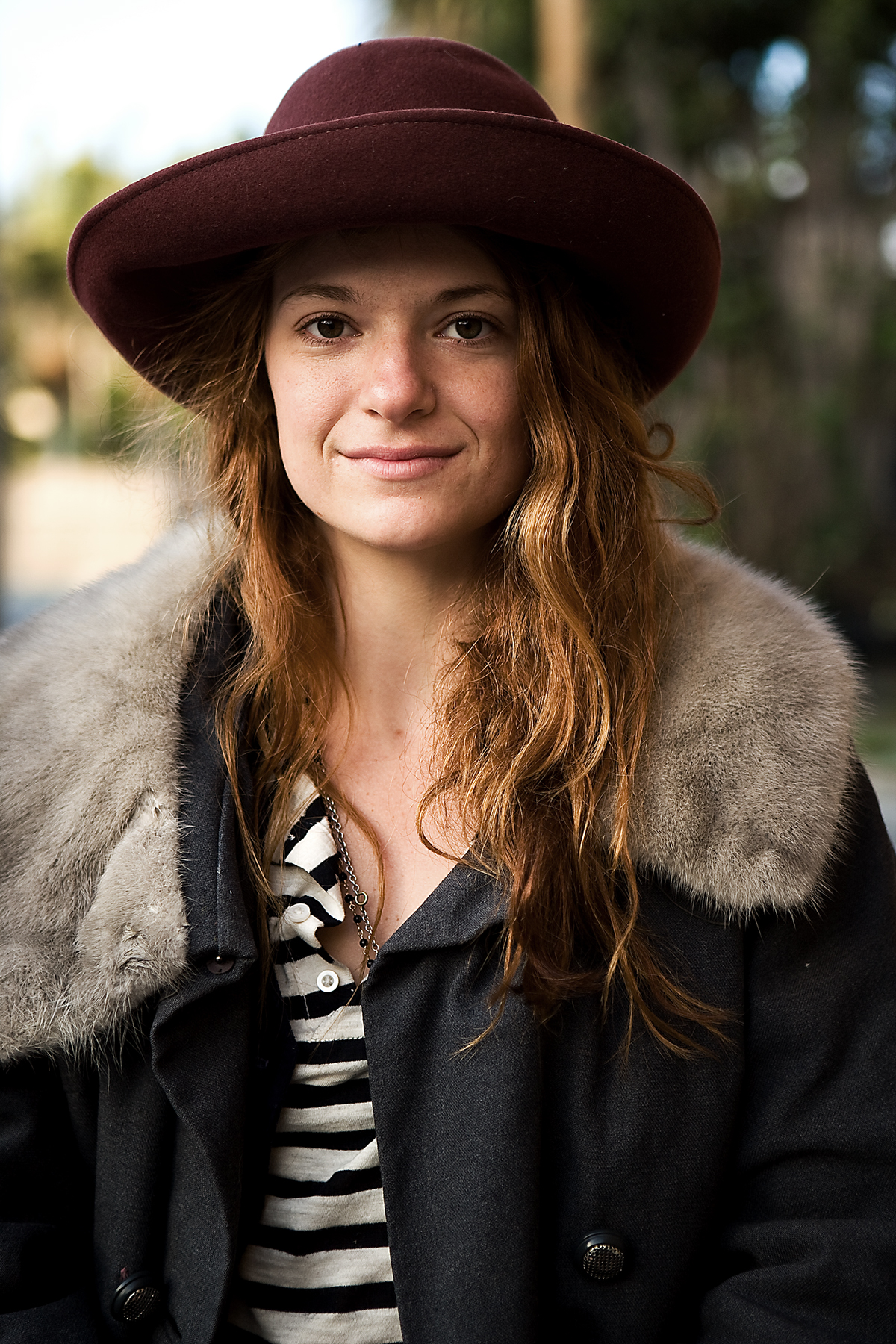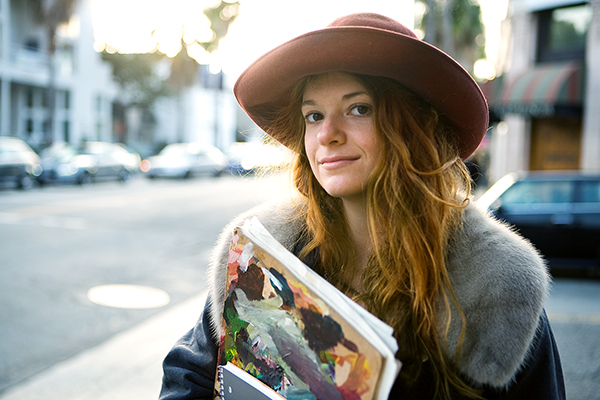“I’d like to see a future where education is more accessible and affordable, and a people who have a greater appreciation for each other, art and nostalgia.”

“We have to learn to shake off society. There are always going to be battles, the world is just that way. But it will always give some as you lose some. Education is the core of what future we are all left with. ”
“People have a lot of shame for following what they want, and most of our baggage is carried from our childhoods.
“I’d like to see a world where people actually learn things rather than be crammed into classrooms and having standards forced on them.”
Sound cliché or radical? Or inspired? Or forward thinking?
I’ll leave that answer up to you in considering the above words of today’s stranger, young artisan of great wisdom, Heather.
And to give us more grounds for contemplation, I give you a few links to the works of Sir Ken Robinson, a very contemporary authority on today’s flawed educational systems. In my opinion, he and Heather are on the right path. You must view this very entertaining and enlightening presentation by Ken Robinson, Changing Education Paradigms. (Editor’s note: Sadly, Sir Ken Robinson passed away on August 21, 2020. Learn more about his work here and here).
Heather and I run into each other at a cool little burb in Venice, California.
Excuse me, run into her is an understatement… I am drawn to her.
Here I am on the street of Abbott Kenney. A gathering place for both local and nomadic travelers from around the globe. To the right of me, I hear the chatter of German tourists, behind me is a group of resident Rasta bikers; and ahead are persons of unimaginable diversity. Yet, as I pass by a quaint little corner coffeehouse, I spy Heather, paper and supplies in hand, as she approaches its doors.
At first glance, I am captivated by her apparent ease of self. And being further intrigued to meet another artist I introduce myself.
Immediately Heather’s charm and free spirit capture me, and after a short twenty minutes of curbside conversation, I am proud to call her Friend.
Heather is a people magnet, drawing hellos and brief conversations from many who pass by us as we sit on the sidewalk chatting away.
“You have a lot of friends,” I comment.
With an infectious smile, she brings me up to speed, “That’s the way it is here, we are a community, and when you live here you get to know a lot of people.”
“I’d like to see a world where people actually learn things rather than be crammed into classrooms and having standards forced on them.”

Even though Heather is infectiously optimistic, she does take a bit of time to express a few of her observations towards the pros and cons of capitalism. Focusing on the problems of flawed healthcare and the quality of our food system, she states, “Even the USDA is not organic, and our healthcare system suppresses things and does not treat illness. It’s the time/money thing. Too much is driven by greed and not a concern for the public.”
Heather goes on to brighter topics, things like the importance of personal integrity, education, and the need for, in Heather’s words, “More communication, less television screens.”
“I’d like to see a future where education is more accessible and affordable, and a people who have a greater appreciation for each other, art and nostalgia.”
Being an artist, and businessman myself, and with the support of Sir Robinson’s instruct, might I suggest that art is not just the works of imagination, but also the works of intellect.
Sir Robinson likens it to thought processes that can be applied to any discipline, regardless of the trade or position. With the aid of his findings may I propose this: Whether CEO or street artist, those who are in touch with their imaginative selves are more likely to be receptive to fresh ideas, more likely to collaborate well with others, and have the self-esteem to listen to their own inspirations in moving forward.
But sadly, as stated by Heather, “People have a lot of shame for following what they want.”
I call it the opinion filter. Defined: The laws of humility state that we should acknowledge the thoughts of others, and do all that we cannot to harm another. But we need to listen to our own mind in finalizing any objective and grow the tenacity to constantly practice the skill of dismissing any destructive input. That through applied education (not controlled, like learning for the test scores), trial, error, and successes; true and complete fulfillment of our inspired-self can occur. It’s not an easy thing to do and requires great practice and discipline. And if achieved while supporting others in the same quest, we give ourselves license to own our perspectives to the fullest. In doing so we can inspire ourselves to achieve that which brings balance and happiness to our lives, and hopefully the community. From there we may obtain greater peace of character in wholly owning who we are, good and bad.
And with the aid of Heather and Sir Robinson, we are given advice and studied methods of doing so.
Heather is very hopeful when speaking of what is ahead for us, “There will be an awakening of our higher conscientiousness.”
Sure it’s cliché, but how many times have we heard our 365 friends tell us to follow our dreams.
Cliché or not, what is important is that we allow ourselves to progress as we are inspired to do so.
Sir Robinson speaks of a 98% genius score in a study of 1500 kindergarten students, and of the staggering decrease of that percentage over a ten-year period.
Startling evidence as to the actual manifestation of the dream, and a propelling argument to rethink our perspectives on learning, personal ability, and in managing the bombardment of external influences that strike us all each and every day.


